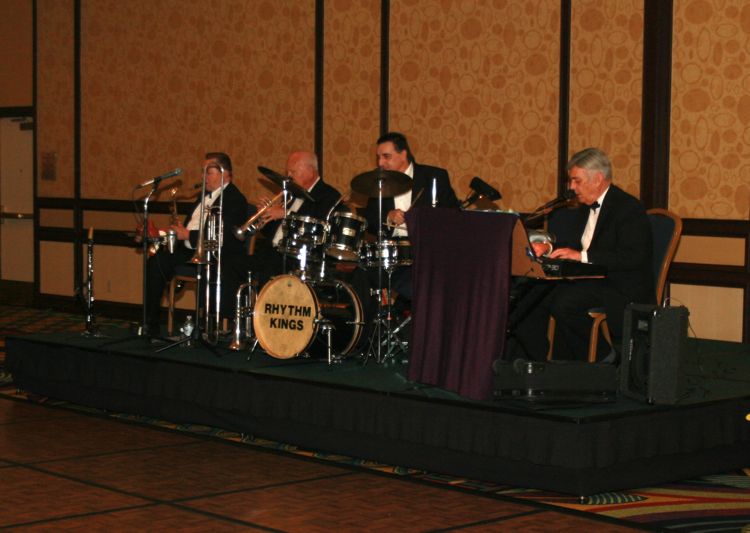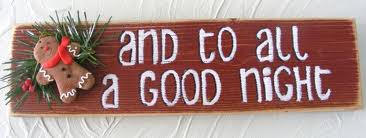Snow Ball (Page Two)

Ken and Amy alert us to the latest information
Our Guests Are Introduced

Albert and Colleen Lum
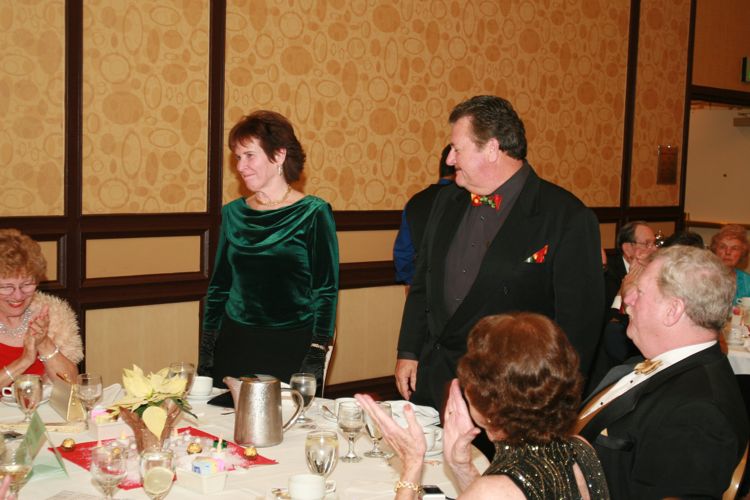
Thomas and Constance Swanson
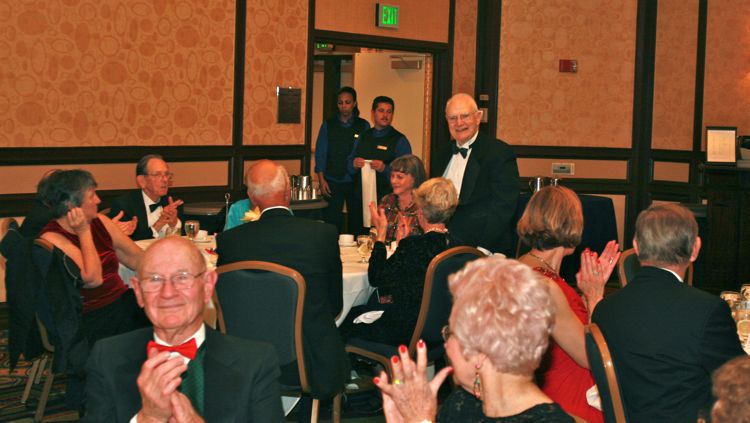
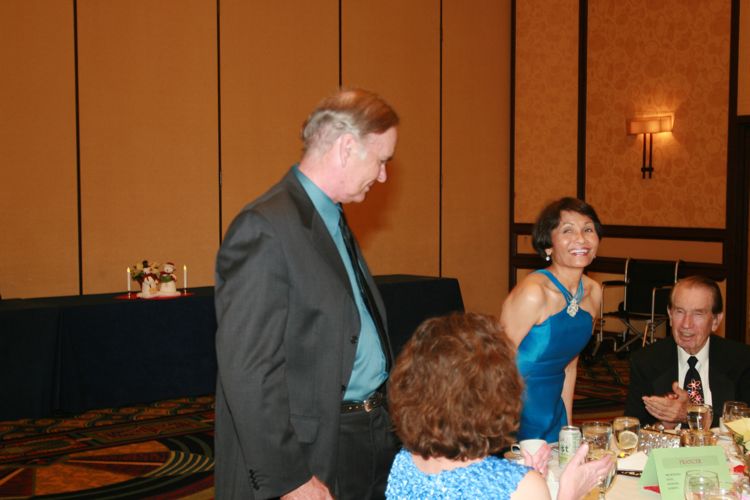
Mark and Mila Roberts
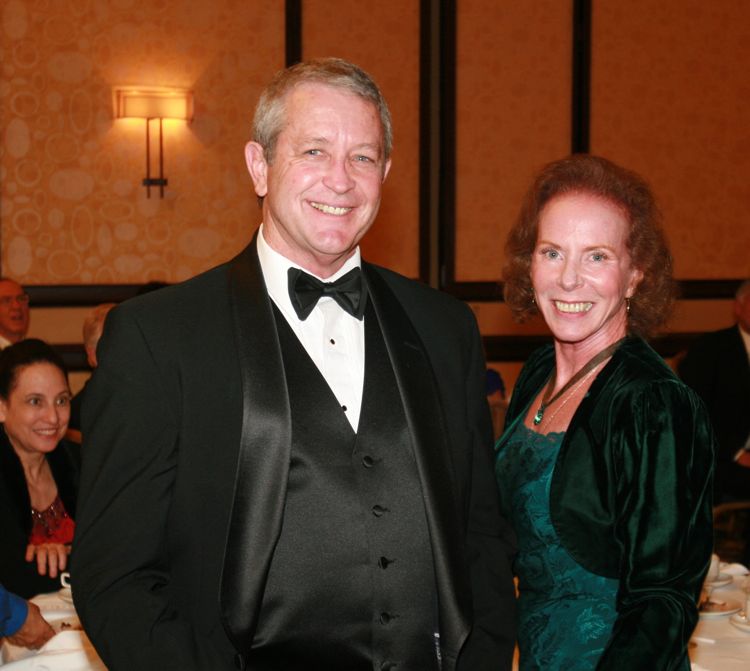
Terry and Abrams Williams
Who Is Going To Be On The Board?
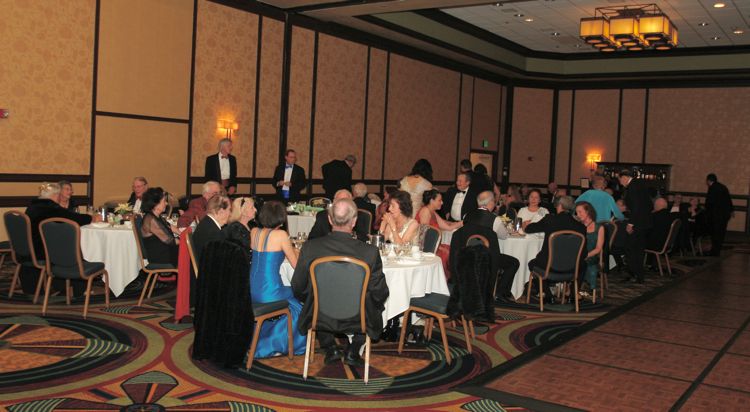
"P-s-s-s-s-s-t, what do you think?"
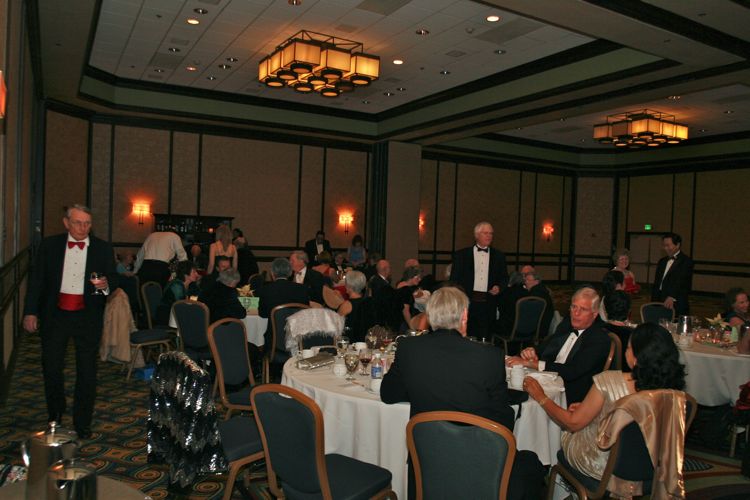

Ken brings up the 2011 Board
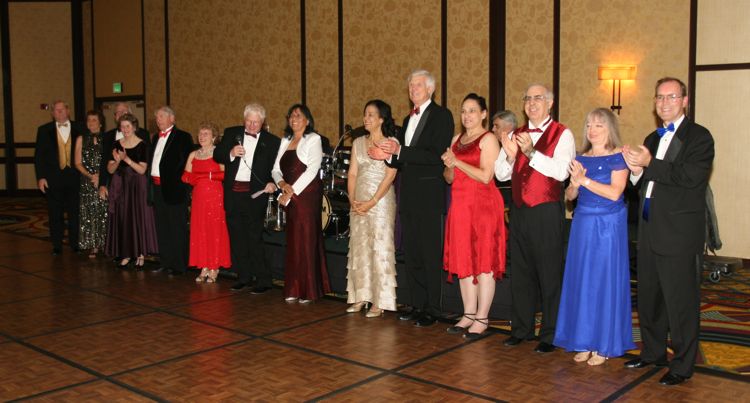
These folks bring us great evens with a great club

The Liles' are new to the Board and do he website for the club


The Dance Directors are recognized - The Bylaws state: "There shall be six Dance Directors. Each Director shall host one dance during the year in accordance with the guidelines for Dance Directors."
Did you know? - Bylaws is an interesting word! The Oxford English Dictionary indicates that the origin of the current modern use of the word is not clear. One possibility is the earliest use of the term, which originates from the Viking town law in the Danelaw, wherein by is the Old Norse word for a larger settlement as in Whitby and Derby (compare with the modern Danish-Norwegian word by meaning town, or the modern Swedish word by, meaning village). However, it is also possible that this usage was forgotten and the word was "reinvented" in modern times through the use of the adverbial prefix by- giving the meaning of subsidiary law or side-law (as in byway). In either case, it is incorrect to claim that the origin of the word is simply the prepositional phrase "by law".

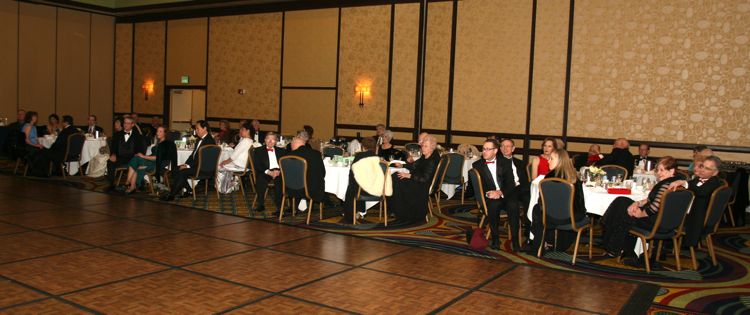
What Is Happening In February 2011?
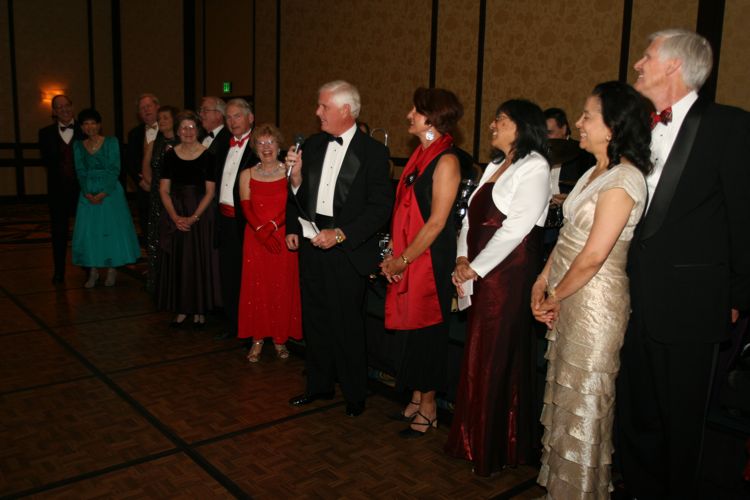
Mark you calendars for February 12th!
Theme - "You Make Me Feel So Young"



Meanwhile Back At The Dance....

Behind the scenes the band gets ready to play


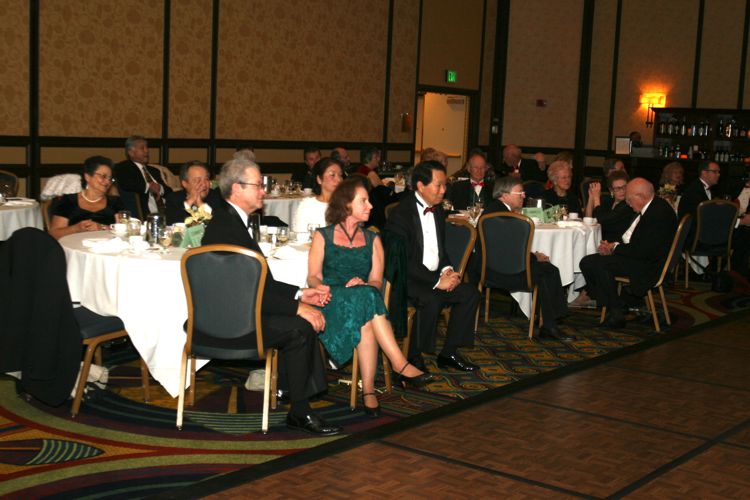
Time To Dance... The Mixer
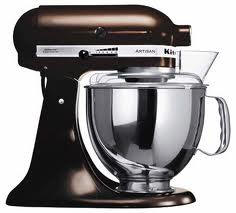


A mixer???
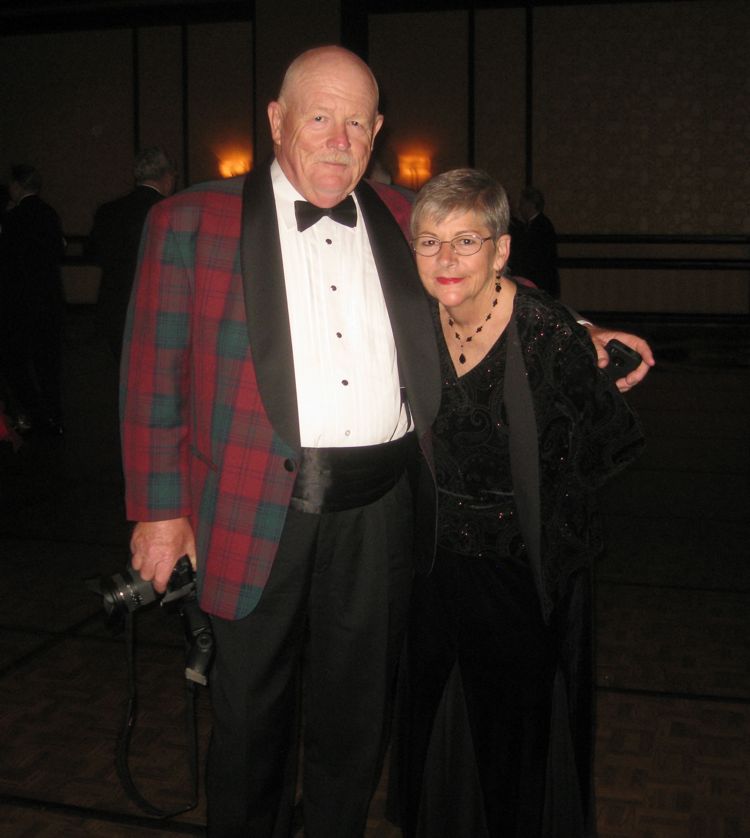
Have the camera ready
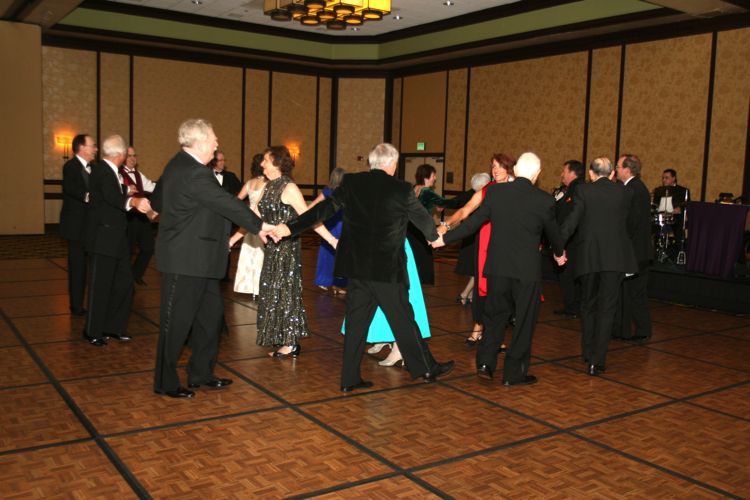
Around and around we go... Where we stop only the Director knows!
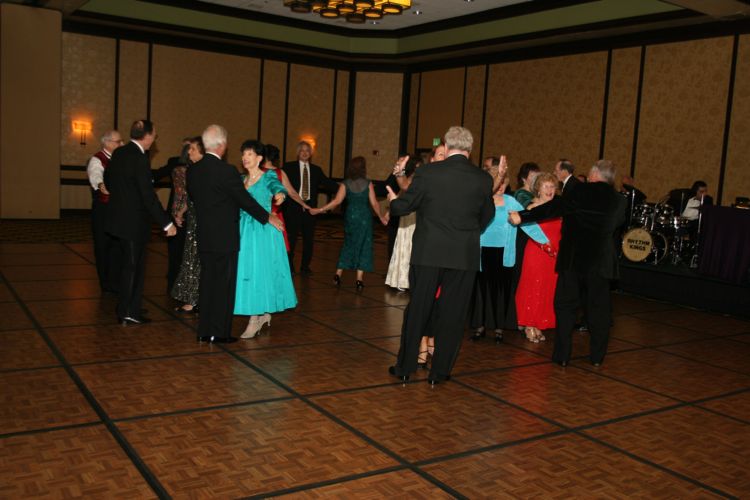
When the music stops there is a frenzy of activity
Did you know? - The Paul Jones is a mixer dance popular in the first quarter of the 20th century. The Paul Jones may be called for any social dance. The Master of Ceremonies is selected, and at his signal all dancers join their hands to form a circle (or several concentric ones, if crowded), with ladies being to the right of their partners. At the second signal of the Master of Ceremonies the dancers repeatedly do the Grand Right and Left move, well-known in square dancing. As a result, the ladies move to the left (clockwise) along the circle, while gentlemen move to the right. At the third signal of the M.O.C. dancers dance with the partner whose hand they are holding at the moment. This procedure may be repeated "as the master deems it advisable".
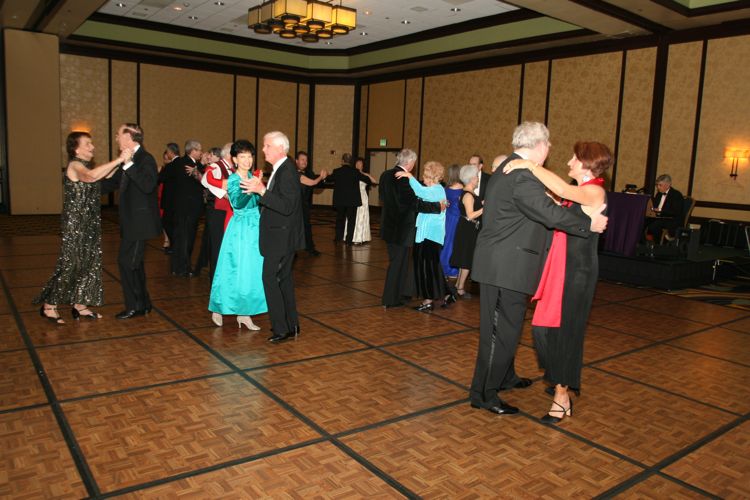
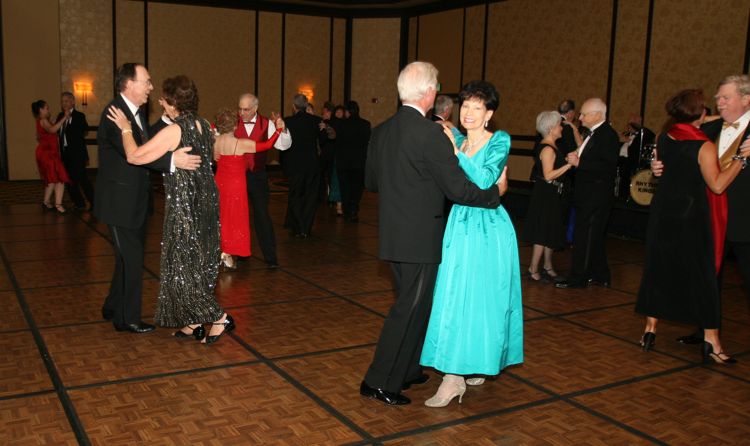
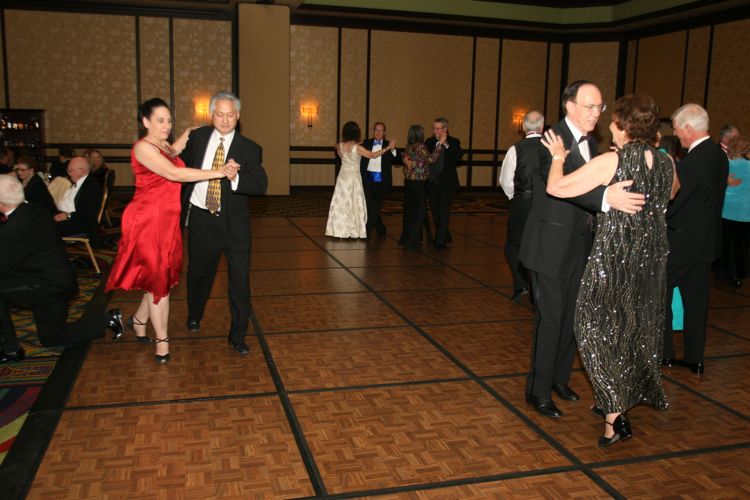
Zooming across the floor

Enjoying dessert

There they go again
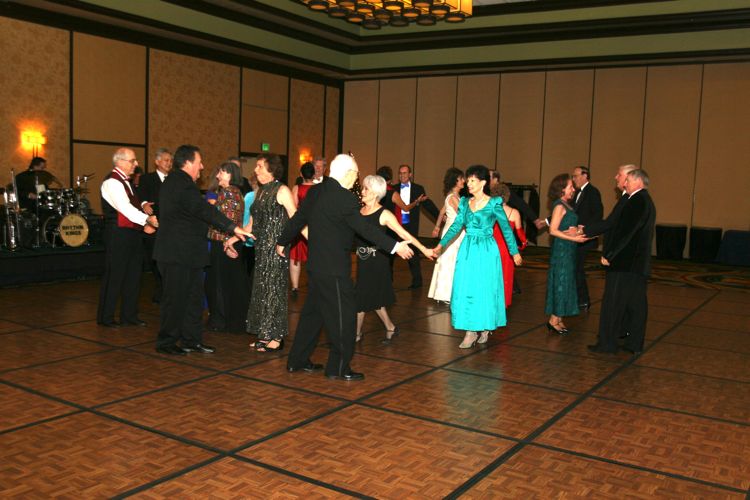
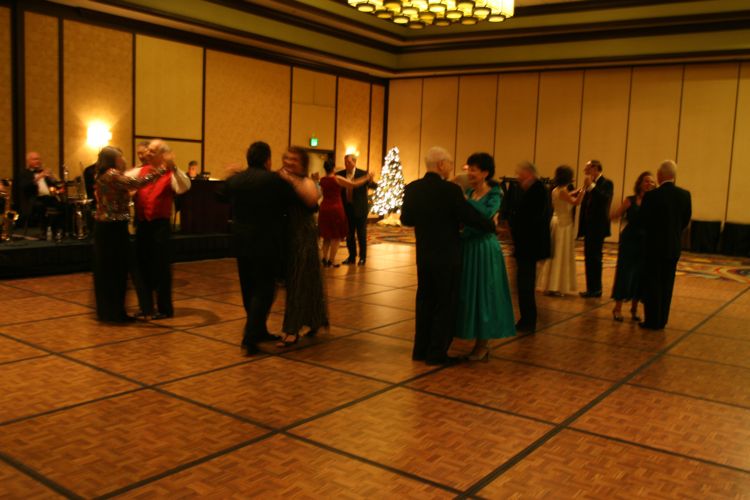
Great dancing



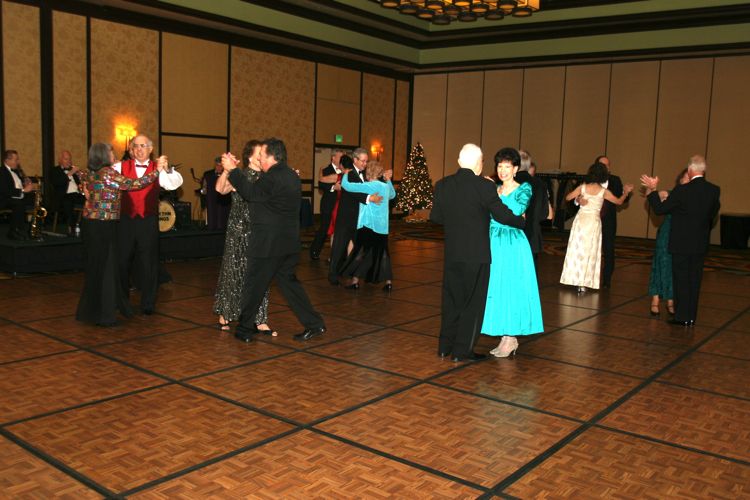
Grab The Dance Card
Did you know? - A dance card (also known by its German-language name, Ballspende, plural Ballspenden) is used by a woman to record the names of the gentlemen with whom she intends to dance each successive dance at a formal ball. They appear to have originated in 18th century, but their use first became widespread in 19th century Vienna, especially at the massive balls during Fasching before Lent.
An actual dance card is typically a booklet with a decorative cover, listing dance titles, composers, and the person with whom the woman intended to dance. Typically, it would have a cover indicating the sponsoring organization of the ball and a decorative cord by which it could be attached to a lady's wrist or ball gown. From the 19th century until World War I, dance cards for the elite of Austria-Hungary were often very elaborate, with some even incorporating precious metals and jewels.
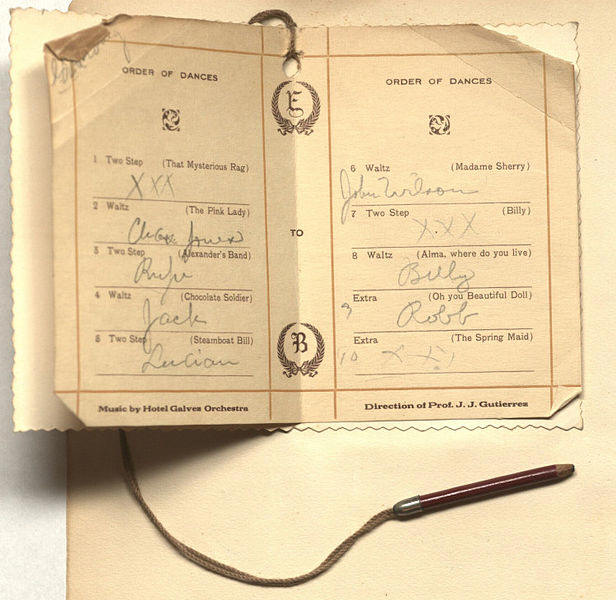
1912 Dance card of Gladys Ewing
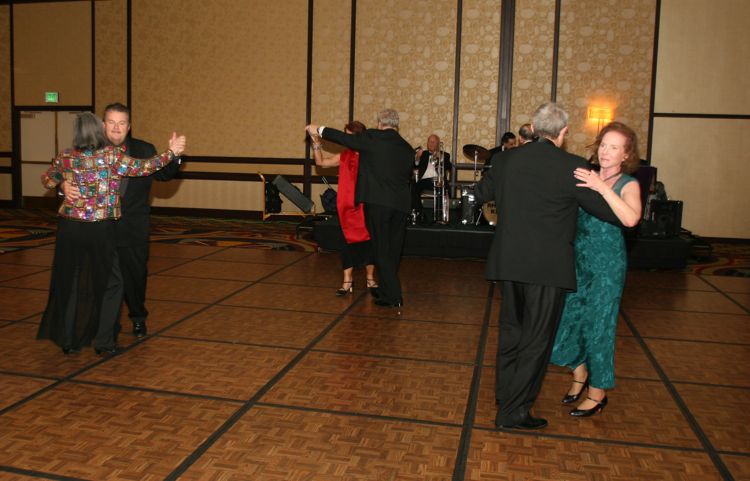
Our guests are not a bit bashful... Excellent!
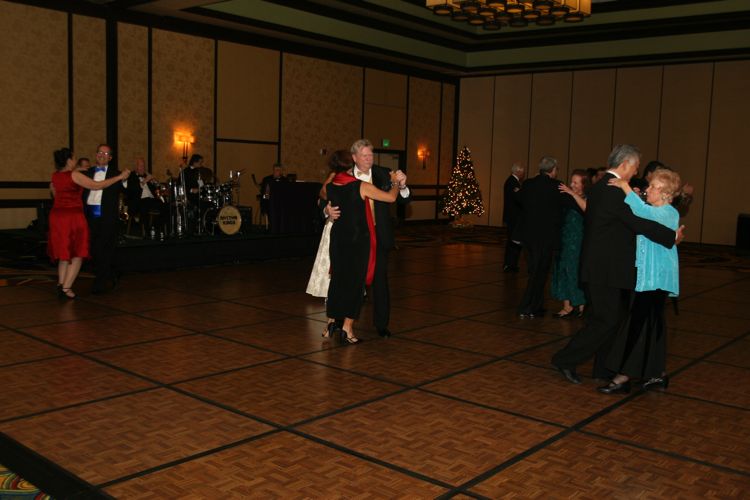

Don't let the bar tender get lonely...
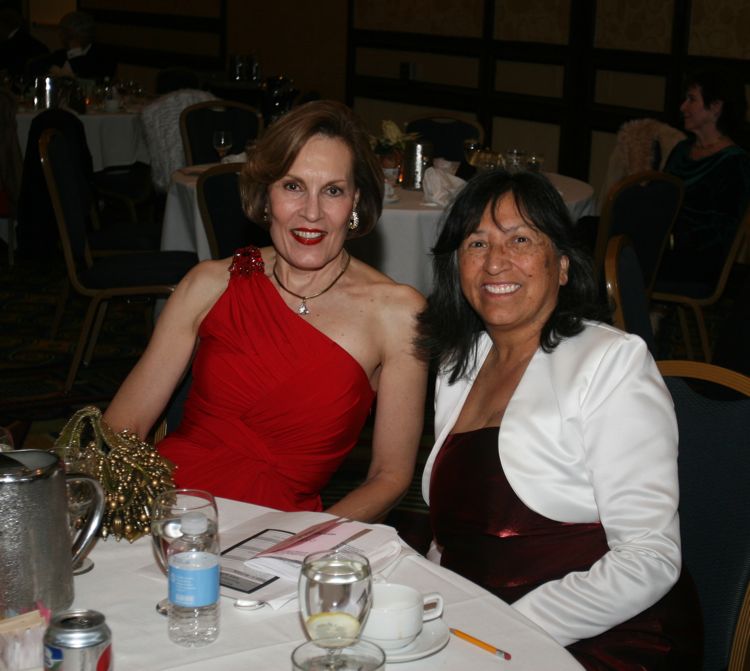
Kathy and Amy solving the world's problems... We need more dancing
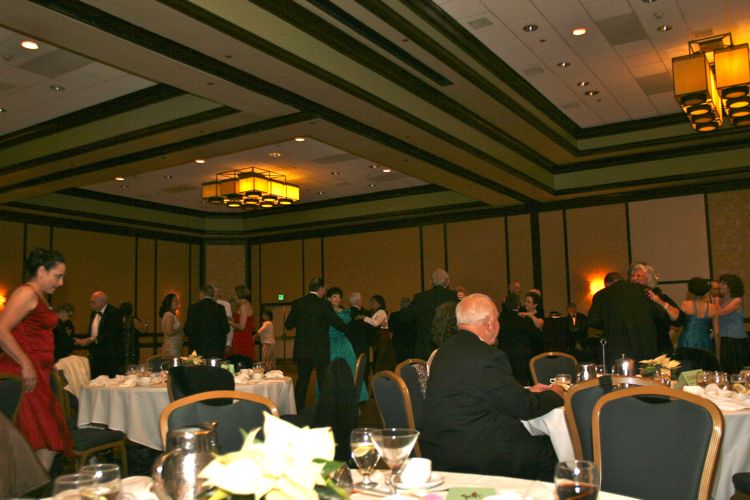



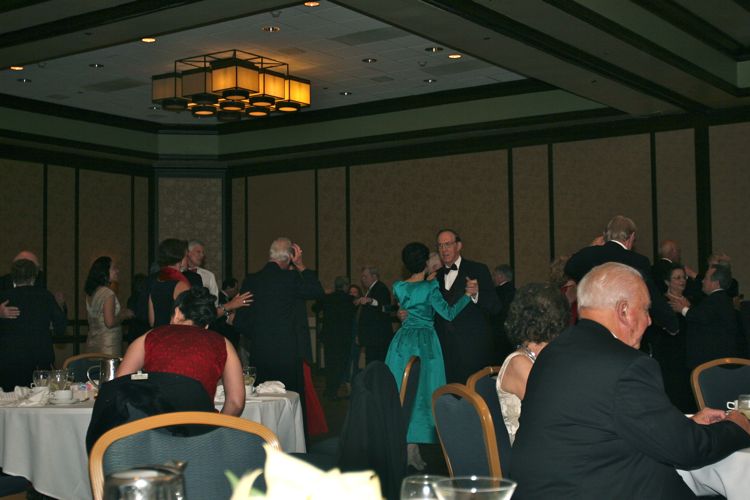
Tripping The Light Fantastic
Did you know? - To "trip the light fantastic" is to dance nimbly or lightly, or to move in a pattern to musical accompaniment.
This phrase evolved through a series of usages and references. The phrase is typically attributed to Milton's poem L'Allegro, but a somewhat similar phrase appears in Shakespeare's The Tempest. The phrase in this modern usage comes from the lyrics of the song The Sidewalks of New York. The following chronological list outlines a few notable usages of this and similar sounding phrases.
The phrase 'tripping on his toe' appears in William Shakespeare's The Tempest, written in 1611:
- Before you can say come, and goe,
- And breathe twice; and cry, so, so:
- Each one tripping on his Toe,
- Will be here with mop, and mowe.
In this context, "mop, and mowe" means 'a grimace'.
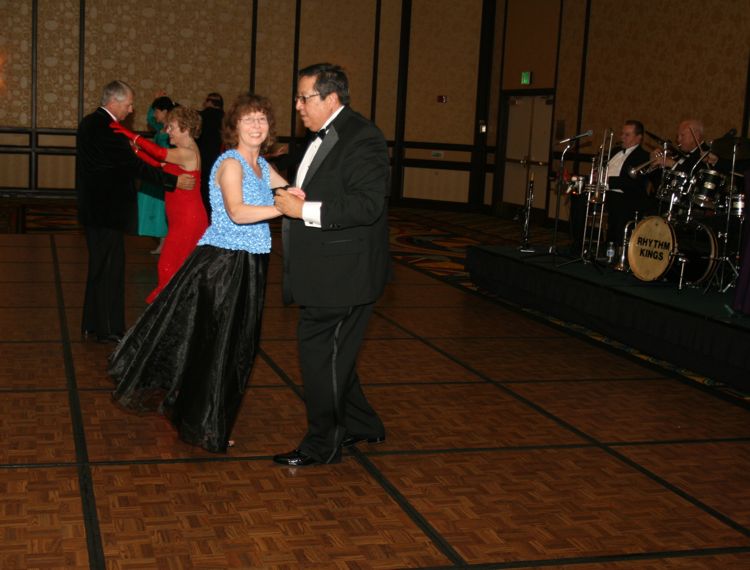

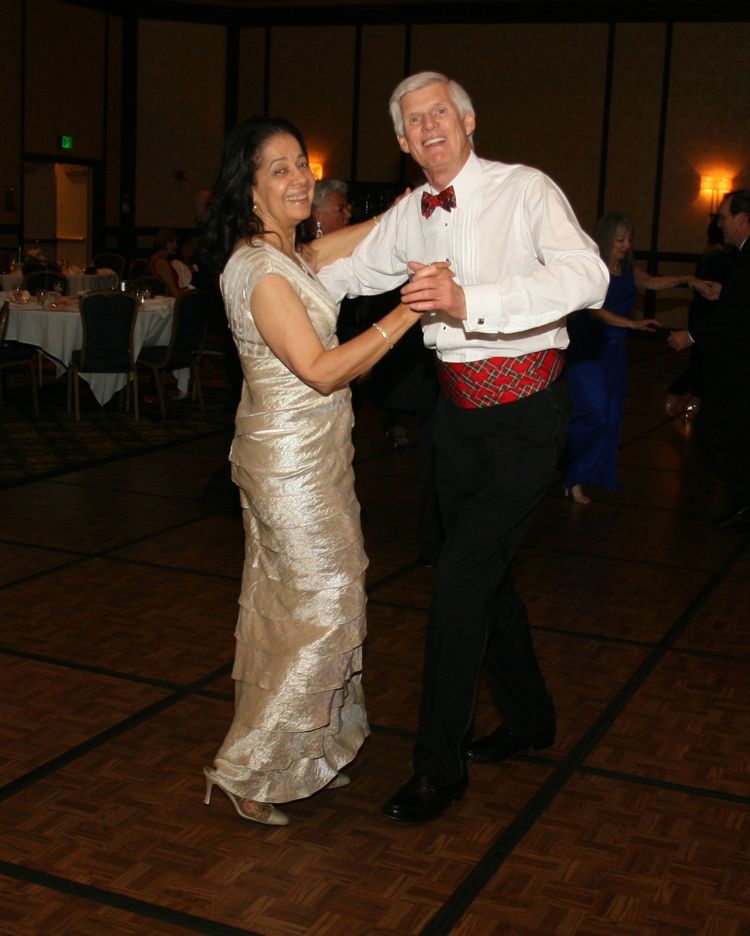


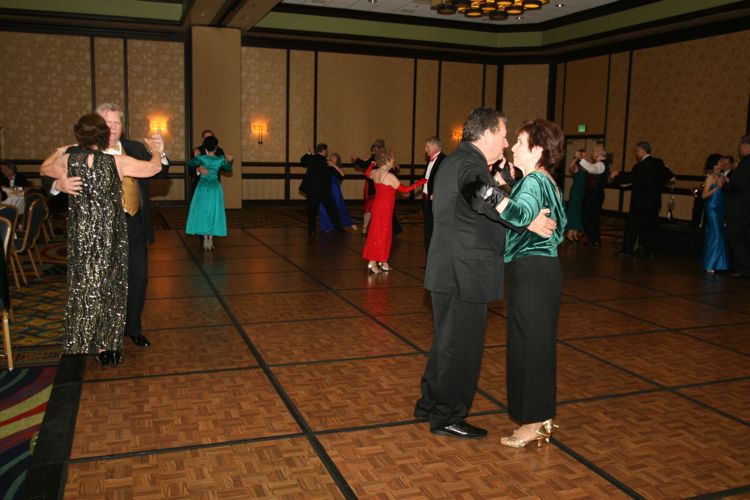
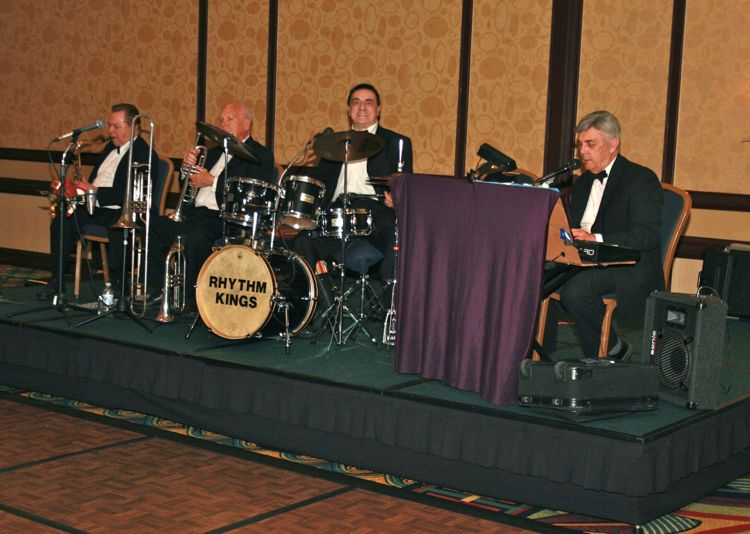
Joe Barile is enjoying the evening!
Did you know? - Joe Barile...drummer, vocalist, guitarist and published songwriter, is a native of Ischia, an Island off the coast of Naples, Italy. He has been performing since the age of fifteen. His career has taken him to Japan and many European countries, and had a lengthy stint performing and recording with The Ventures, Shango, and Hamilton, Joe Frank and Reynolds.
He has written many songs for these groups that have been recorded and released worldwide. Joe has been collaborating with numerous songwriters over the past few decades including sax man Tony Giaimo and Phil Anthony and Nina Beck. Joe's rich, thought-provoking melodies conjure up equally deep, meaningful lyrics by his co-writers, and Joe writes some fine lyrics of his own as well, in the "future standard" and Italian ethnic categories. When not performing, Joe enjoys cooking.


